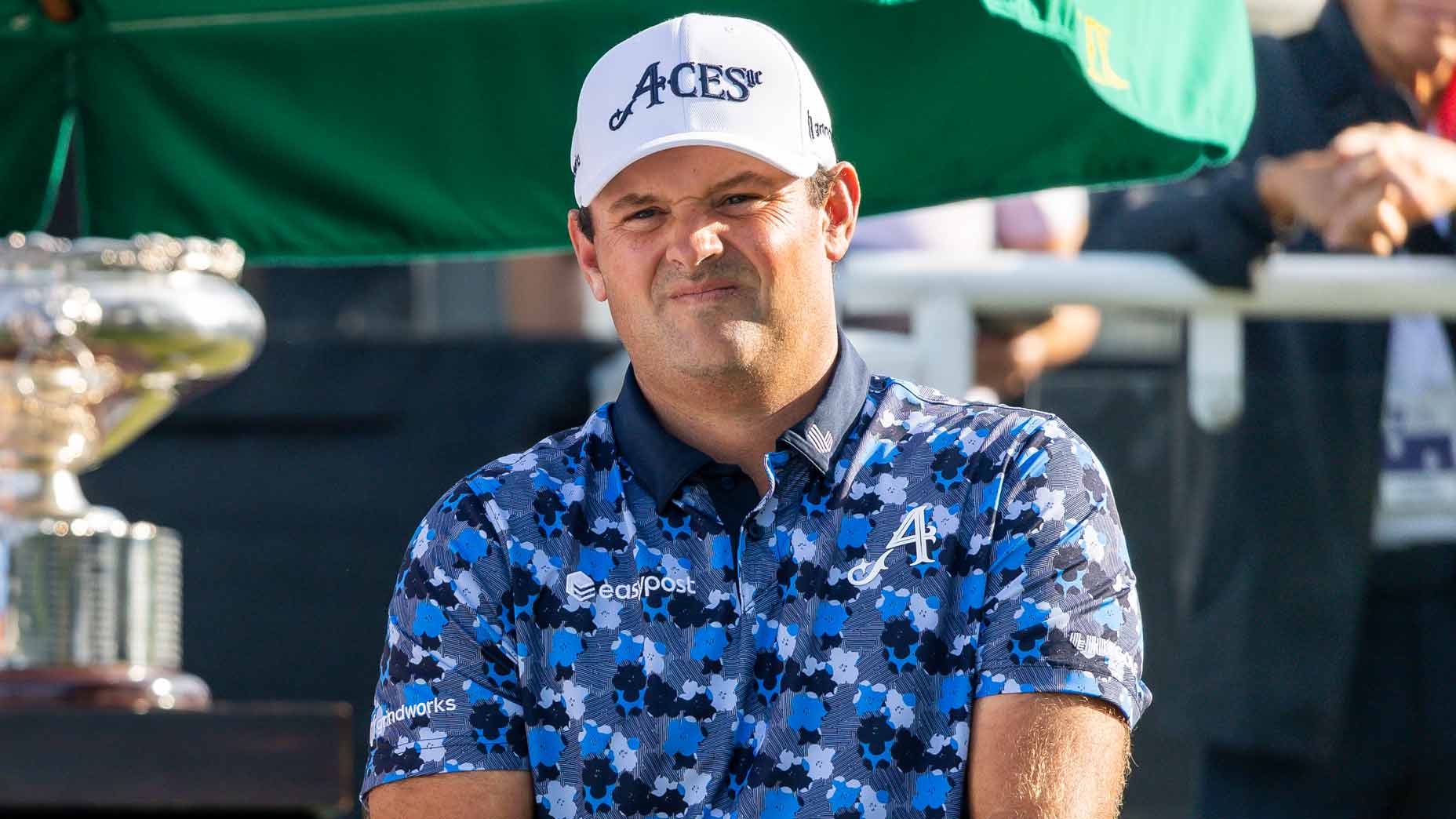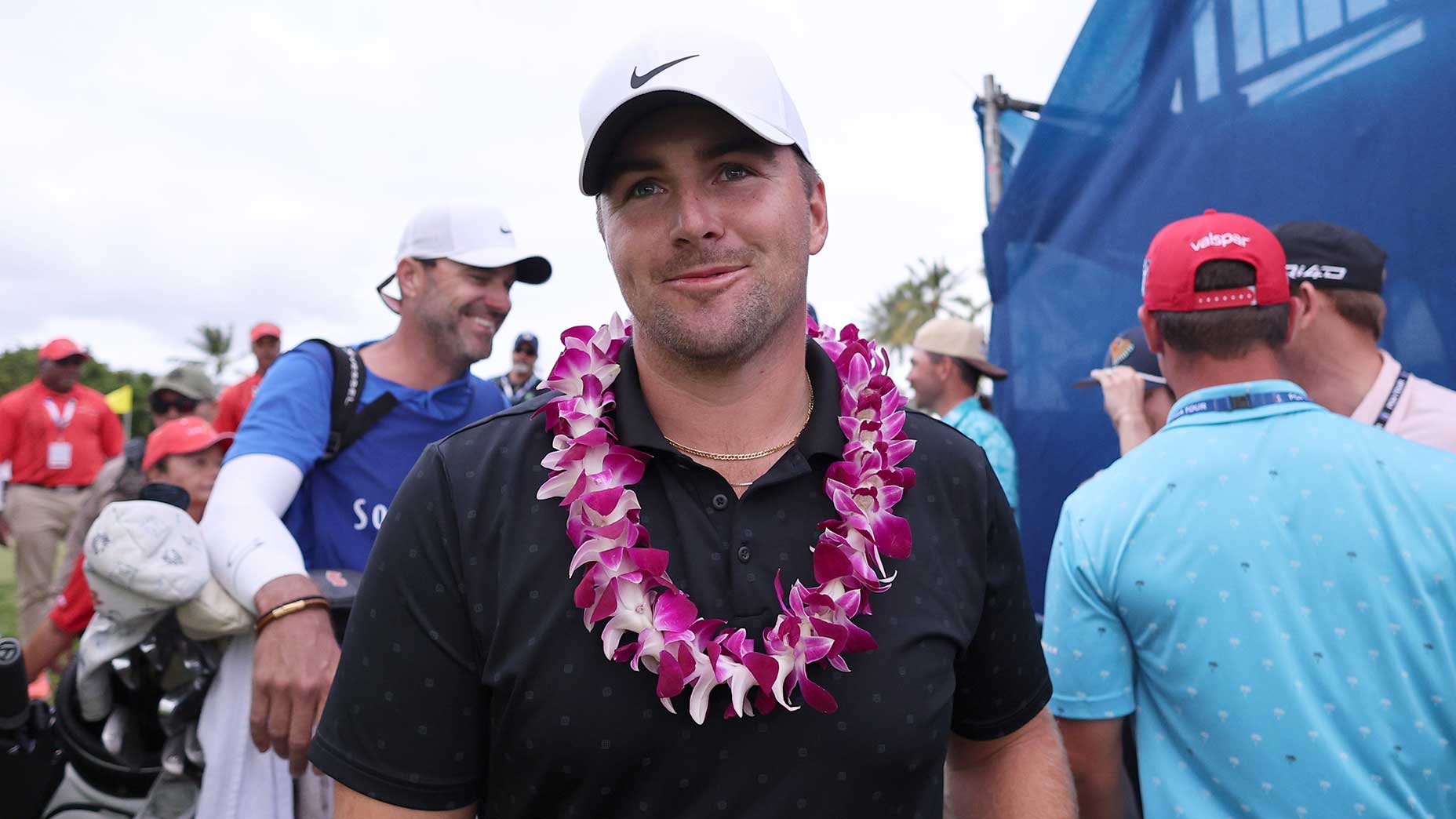 2026 American Express odds: Scottie Scheffler leads favorites in season debut
2026 American Express odds: Scottie Scheffler leads favorites in season debut
7 things to know about the new, 10,000-word New Yorker story on Augusta National
On Friday morning during second round of the U.S. Open, The New Yorker published a lengthy story on, among other things, the exclusivity and manufactured beauty of Augusta National. The story spans nearly 10,000 words, and the author, Nick Paumgarten, details his experiences during the 2019 Masters. Much of the story won’t surprise GOLF.com readers, but it also includes not-so-glowing reflections about the aura and exclusivity of the club. Here are seven things you should know about the story:
1. There’s a particularly amusing anecdote about phones
One of the many unique aspects of Augusta National is a strict policy that bans cell phones on the course. Paumgarten shares a brief story he heard of how one employee tried, outlandishly, to sneak his phone in anyway.
“One morning during the tournament this year, a story went around that the club had done a spot inspection of staff headquarters and found that an employee had hidden a cell phone between two slices of bread.”
That might be a first. And you’d have to imagine a cell-phone sandwich wouldn’t come close to matching the taste of a fresh pimento cheese sandwich.
2. The overarching message: a social commentary on America
The story is rich in detail and specificity regarding the writer’s experience. But the broad message — sometimes made implicitly, sometimes explicitly — centers around a social commentary on exclusivity and America. Perhaps no passage makes that more clear than this one:
“You could say that (Augusta is) a prelapsarian paradise, a dream of a bygone America of good manners and affordable delights. You could also say that this America never really existed, except as a figment of privilege and exclusion, and that the conjuring of it, on such a scale, is a kind of provocation.”
You don’t have to read between the lines to get the point.

3. There’s a staggering estimate for weekly merchandise sales
Any patron who visits the Masters will likely stumble into the merchandise tent at some point. For many, a shirt or hat is the perfect way to commemorate what might be a once-in-a-lifetime experience. Augusta National doesn’t release sales data, but the story pegs an estimate — and it’s a staggering number.
“The club doesn’t share sales figures—it doesn’t even reveal how many tickets are sold—but a popular estimate is that it moves fifty million dollars of merchandise in that one week.”
Yes, you read that right. Fifty. Million.
ADVERTISEMENT
4. He offers a light-hearted story about meeting Instagram star Bob Menery
Prior to being admitted into Berckmans, Paumgarten appears to have never heard of the Instagram sensation. Menery has over 1.8 million Instagram followers, the platform on which he shares humorous sports content. Paumgarten writes about an interaction between Menery and Brooks Koepka — and what Menery had done the year prior.
“When Menery, outside the ropes, heckled Koepka about this during an early round at the Masters, Koepka laughed, but Menery got the Pinkerton glare. ‘You don’t fuck around here,’ he told me. Last year, Menery posted a video on Instagram in which he crank-called the club pretending to be Bill Gates (who is a member), ludicrously demanding a tee time in the midst of the tournament. Now he was hoping that no one remembered this stunt; he was having too good a time, making too many connections, and, like nearly everyone at Augusta, sorely hoping to be invited back.”
5. It includes some political and cultural undertones
Or overtones? There’s plenty of first-person narrative in the story, and in one scene, the author describes a phone call he makes to his son to characterize some of the people he’s met and impressions he’s made. It’s, well, direct.
“This isn’t a golf tournament. It’s a cultural event where the Southern United States has its chest stuck out and is saying ‘Come down and visit. It’s been a hundred and fifty-five years since the Civil War, and yet we want to let people know we’re a strong people, a hardworking people, a proud people.’”
He also describes interactions with other patrons about political preferences, including their thoughts on President Donald Trump and Congresswoman Alexandria Ocasio-Cortez. The imposition of Trump starts in the middle of the story and grows as the story progresses. The story ends with the scene of Tiger accepting the Presidential Medal of Freedom from Trump at the White House Rose Garden.
6. Tiger-Trump comparisons are aplenty
Paumgarten doesn’t exactly paint Tiger — nor his stunning Masters win — in the most positive light. First he directly quotes Tiger’s graphic texts with a porn star during his infidelity scandal. Then, he analyzes how people react to Tiger at Augusta. His words speak for themselves.
“This was the man whom everyone was roaring for. There was something Trumpean about it all—a suggestion not of redemption and forgiveness but of indulgence, or abandon.”
7. He casts doubt on the foundation of Tigermania
Paumgarten doesn’t take too kindly to the crowning of Tiger as a conquering hero, especially as it pertains to his comeback. He takes particular offense to the redemptive narrative that focuses on his injury history rather than infidelity and other personal issues. The latter, he posits, is the true quality that endears him to people.
“Knowing what we do about America’s capacity for forgiveness, or for willful forgetting, we can maybe allow, with some ruefulness, that the restoration of his body was more astonishing, after all.”
ADVERTISEMENT





